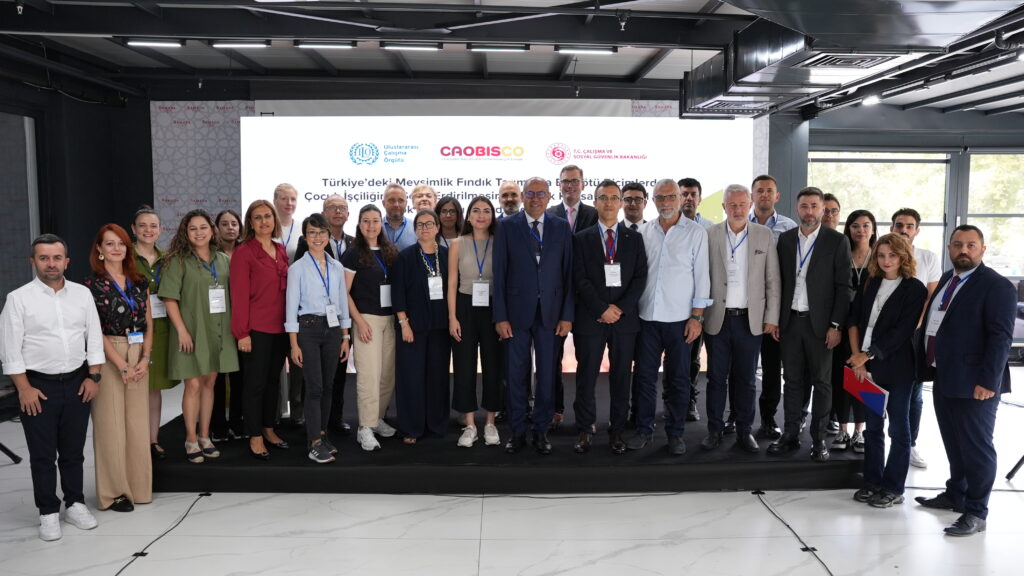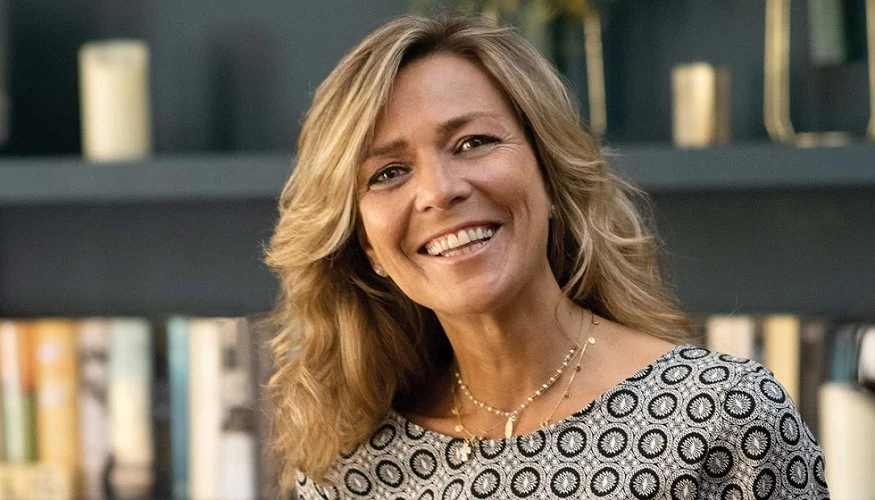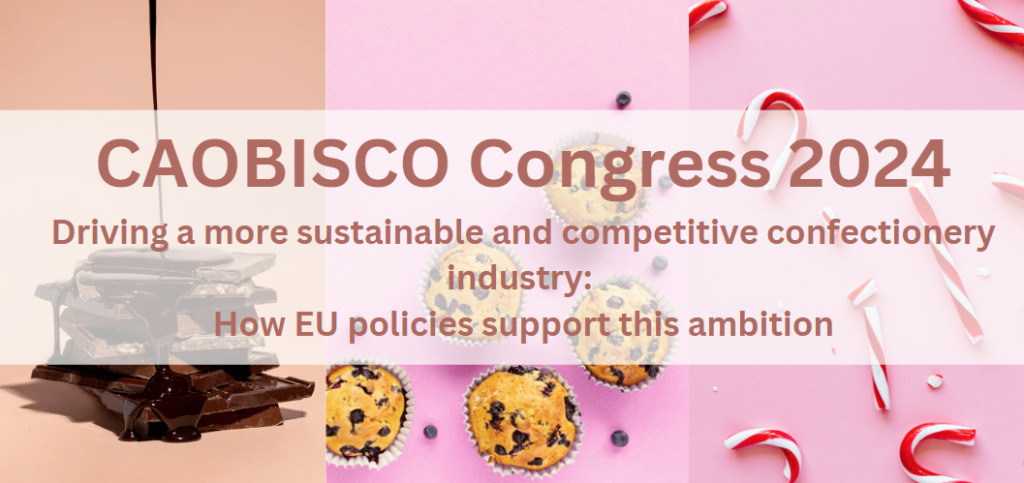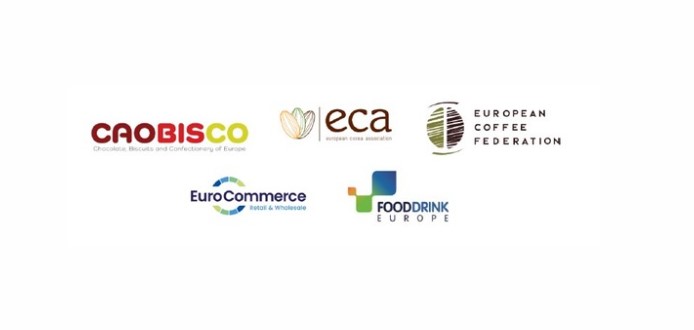A glimpse into the CAOBISCO-funded ILO public-private partnership (PPP) project on the Elimination of Worst Forms of Child Labour in Seasonal Agriculture in Hazelnut Harvesting in Türkiye

 This year marks ten years of the beginning of the ILO public-private partnership (PPP) project on the Elimination of Worst Forms of Child Labour (WFCL) in Seasonal Agriculture in Hazelnut Harvesting in Türkiye funded by CAOBISCO members.
This year marks ten years of the beginning of the ILO public-private partnership (PPP) project on the Elimination of Worst Forms of Child Labour (WFCL) in Seasonal Agriculture in Hazelnut Harvesting in Türkiye funded by CAOBISCO members.
In August, a CAOBISCO delegation travelled to Türkiye to visit the project activities and interventions on the ground in Black Sea region provinces of Samsun and Ordu, welcomed by the International Labor Organization (ILO) Office for Türkiye team. It was also an opportunity to meet the local authorities in the active provinces and to engage with field staff members of the implementation partner, Pikolo Association.
Throughout the years, the project has expanded its scope in terms of target children and intervention provinces. To date, the project has covered six provinces (Ordu, Samsun, Giresun, Sakarya, Düzce and Şanlıurfa) in the Black sea region and has given support to children of migrant seasonal workers with the help of over 100 professionals proving education and skills development services, considering all its phases since 2013.
The yearly field visits are extremely useful to understand the progress in the field, discuss with families, agricultural intermediaries and orchard owners, and witness first-hand the positive effect that this project has in the lives of the target children and adolescents. The CAOBISCO delegation visited several schools where children and adolescents receive academic education and even extracurricular activities such as gymnastics, dance, music or craft and pottery class. Teachers are unequivocally committed to delivering the best quality education possible and try to unlock every kid’s potential. This year, the delegation had the opportunity to meet with a former beneficiary child of the project that later pursued university studies and is now a teacher in the very same schools where he once received education provided by the project.
Some children and their families live in temporary settlement areas with minimum living standards which could lead to children not maintaining regular school attendance and fall behind in their classes. Therefore, while the main pillar of the project continues to be quality education services for the targeted children, the project also emphasizes boosting the improvement of living conditions of children of seasonal agricultural workers as they are often interrelated.
The CAOBISCO delegation also exchanged views on the project and field visit with the ILO Office for Türkiye team, staff members of the implementation partner Pikolo Association, the Vice-Chairman of the Black Sea Hazelnut and Products Exporters’ Association and representatives from the Turkish Ministry of Labour and Social Security. There was also the opportunity to meet with local authorities of some municipalities where the project is active to ensure their increasing role in the continuation of the project. The Turkish Ministry of Labour and Social Security and provincial authorities have reiterated their commitment to further engage in the eradication of child labour and accelerate efforts. Especially given the upcoming Türkiye National Programme on the Elimination of Child Labour and action plan for the 2024-2028 period.
2023 does not only mark the 10th anniversary of the project, it is also the last year of phase 4. For months, CAOBISCO and its members have been engaging in discussion for an extension proposal of the project. In the new phase, the execution of a handover strategy benefiting from the lessons learnt in previous phases is envisaged. The project, in its last phase, will then further concentrate on ensuring the ownership of the relevant central and local government authorities in terms of planning and implementing child labour programmes.
In light of the upcoming due diligence obligations in the EU Corporate Due Diligence Directive and the EU Corporate Sustainability Reporting Directive and the update of Türkiye’s new National Programme on the Elimination of Child Labour for 2024-2028, the extension of the project signifies the acknowledgement of CAOBISCO members of the importance of due diligence readiness and of sustainable and responsible corporate behaviour throughout global value chains.
Related news

Press Release: CAOBISCO and ILO Strengthen Commitment to Eliminate Child Labour in Hazelnut Harvesting in Türkiye










